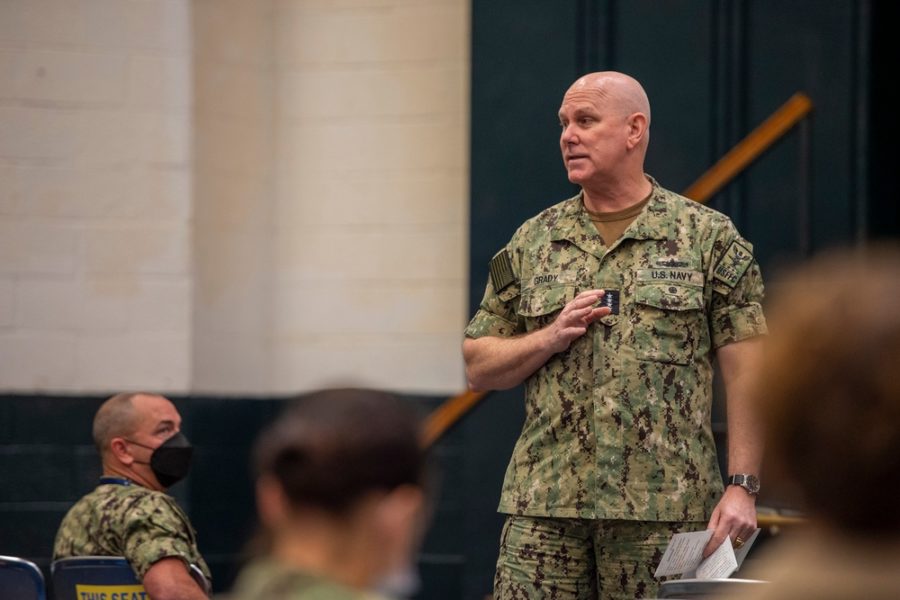The Senate Armed Services Committee advanced Adm. Christopher W. Grady’s nomination to be Vice Chairman of the Joint Chiefs of Staff on Dec. 14, moving him one step closer to taking on the military’s No. 2 job.
The committee’s favorable report on Grady was expected after his confirmation hearing Dec. 8, during which multiple Senators, both Republican and Democrat, expressed optimism about advancing his nomination to ensure the vice chair position is filled as quickly as possible.
It’s been more than three weeks since Air Force Gen. John E. Hyten officially stepped down as vice chair, leaving one of the top positions in the Pentagon vacant. Defense Department Press Secretary John F. Kirby has called any sort of gap in the vice chairman role “not optimal,” but noted that the Joint Staff has worked through such situations before. By law, there is no procedure for naming an “acting” vice chairman, but some of Hyten’s roles and responsibilities can be delegated on an “acting” basis, Kirby added.
Now, Grady, who most recently led the Navy’s Fleet Forces Command, awaits a vote on the floor of the Senate. His hearing in front of the Senate panel proceeded, for the most part, smoothly, as he advocated for nuclear modernization, an end to over-classification, and a data-based approach on the Joint Requirements Oversight Council. Sen. Josh Hawley (R-Mo.) was the only committee member who publicly stated he might not vote for Grady.
But while leading lawmakers on both sides of the aisle have previously pledged to act quickly to minimize any vacancy, any individual Senator can place procedural “holds” on nominees after they are reported out of committee, which can slow down the process—such holds delayed Air Force Secretary Frank Kendall’s appointment for roughly a month.
On top of that, the Senate’s calendar for the final few weeks of the year is already crowded as it continues work on the 2022 National Defense Authorization Act, raising the nation’s debt limit, and negotiating on President Joe Biden’s social spending bill, called Build Back Better. Indeed, Grady’s confirmation hearing was originally scheduled for Dec. 2 but was postponed to accommodate the potential floor schedule for the NDAA.
The calendar could clear up some soon though—the Senate is expected to finish its work on the debt limit Dec. 14, and the NDAA is nearly done as well. A new compromise version of the annual defense policy bill passed the House with a large bipartisan majority, and the Senate voted 86-13 to invoke cloture on the bill Dec. 14, setting it up for final passage as early as the evening of Dec. 15.
The Senate Armed Services Committee also voted Dec. 14 to favorably report a list of 10 pending military promotions in the Army, Navy, and Space Force.
